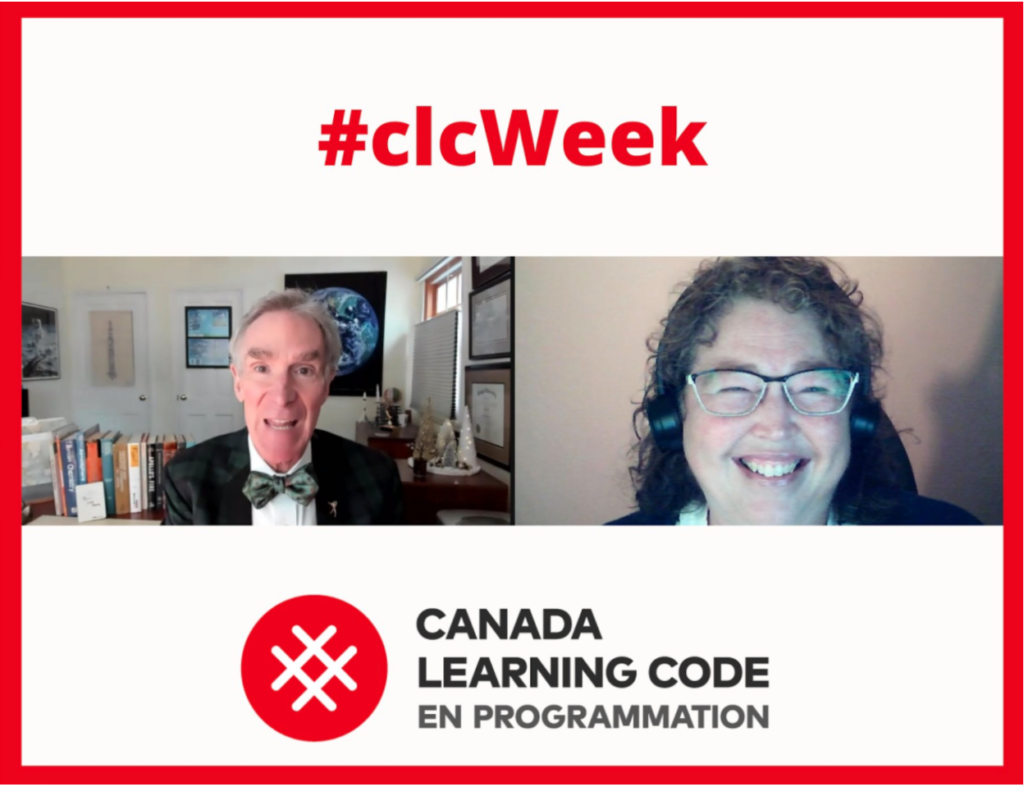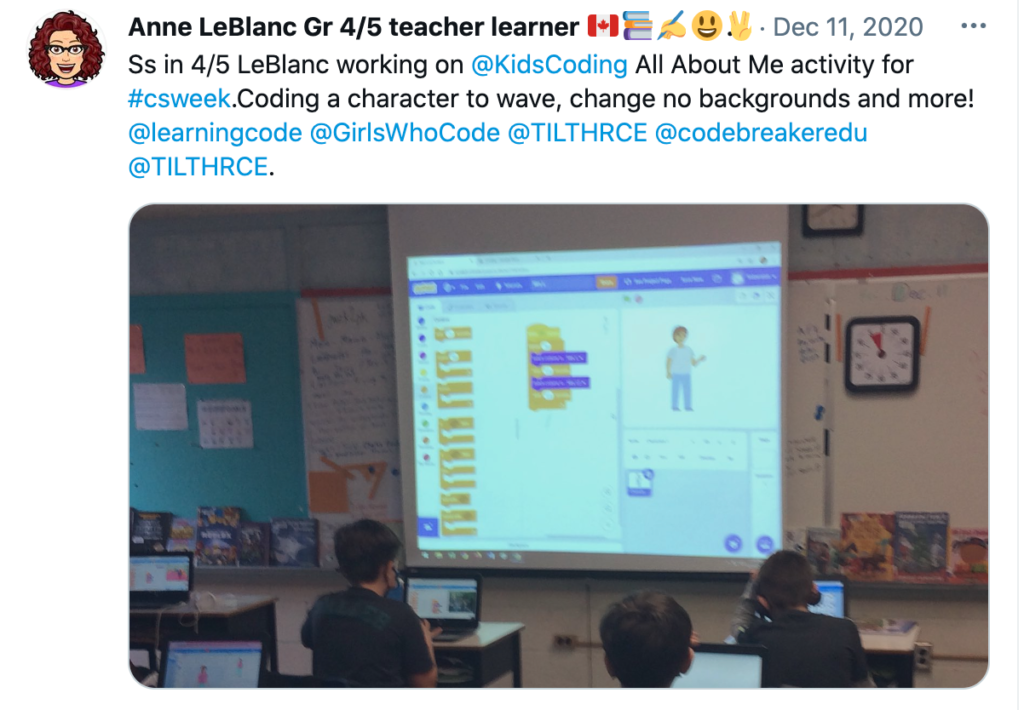Meet Anne, An Enthusiastic Teacher Who Believes All Students Should Be Taught Computer Science
90% of respondents who filled out our Winter 2020 K-12 Computer Science Education Framework survey felt that students should be learning computer science from kindergarten to grade 8 while 99% of respondents felt that students should be learning the subject from grades 9-12. Yet, it isn’t a mandated part of every curriculum across Canada.
That doesn’t stop the incredible teachers who take on incorporating it into their curriculum though! At Canada Learning Code, we strive to provide teachers with the tools and resources needed to feel confident teaching computer science in their classrooms.
During Canada Learning Code Week 2020, we met some awesome educators who strive to empower each and every student to be successful and, without a doubt, there was a resounding theme: computer science is a necessity. We (virtually) met up with Anne, a lucky educator who won our exclusive virtual meet and greet with Bill Nye!
Tell us a bit about yourself!
I live in Dartmouth, Nova Scotia, Canada. I teach a grade 4/5 combined class at Bel Ayr Elementary School. I teach all subjects except physical education, French and music. This is my 33rd year of teaching.
Is this your first experience with Canada Learning Code?
I have participated in several different events affiliated with Canada Learning Code including Ladies Learning Code and a CLC Week kick-off session and CLC week.
How was CLC Week for you? What was the experience like?
CLC week was pretty busy for me. I used three different coding activities with my students, the Outbreak Simulator activity from code.org, coding animations on micro:bits and the Technology Consumption vs Technology Creation activity from CLC.

What was your favourite part?
I love the palpable excitement in the room as students see their code come to life on micro:bits. I hope to transfer the concept of ‘trouble-shooting’ coding issues to editing work in language arts or checking math results.
What lesson plan did you teach? What were your students’ reactions?
I taught the Technology Consumption vs Technology Creation lesson from CLC. The students enjoyed figuring out what the purpose was for different pieces of media and who the audience was and why.

Are you planning to continue teaching computer science?
Absolutely! I believe computer science skills can be taught from primary on up. Not only are they useful, but they give some students who may not excel in other subjects, an area to excel in. Computer science is an important skill for my students who will be in the workforce in the early 2030s. Experience with artificial intelligence, for example, Quick, Draw with Google and Machine Learning for Kids can help them understand what AI can and cannot be used for. Computational thinking skills are necessary to solve big and small problems.
Can you share one piece of advice to teachers who are teaching or thinking about teaching computer science for the first time?
The most important piece of advice I can share is twofold:
- Just try an activity, it is OK to make mistakes
- it is fine if your students know more than you do – learning from each other is a positive thing for you and your students.
Have you checked out the FREE resources we offer to teachers? Visit our Teacher Code webpage for an overview and take a look at our K-12 Computer Science Education Framework – an amazing tool that helps tie computer science to your curriculum!
A huge thanks goes to our partners at Amazon Future Engineers, whose support makes it possible to offer workshops and events like Canada Learning Code Week at no cost.
Other Great Reads
-
The Smartest Career Advice? Keep Upskilling and Never Stop Learning
Whether you’re looking to secure more responsibilities in your existing role, want to move into a higher level role, or want to become more competitive ...
-
Career Collective: Your One-Stop Career Growth Shop
Helping early to mid-career professionals navigate career growth with support and community The job market is changing fast, and keeping up...
-
Your International Women’s Day Reading List
Today is International Women's Day. While A LOT has changed in tech since we started as Ladies Learning Code in 2011, there’s still so much work to be d...
